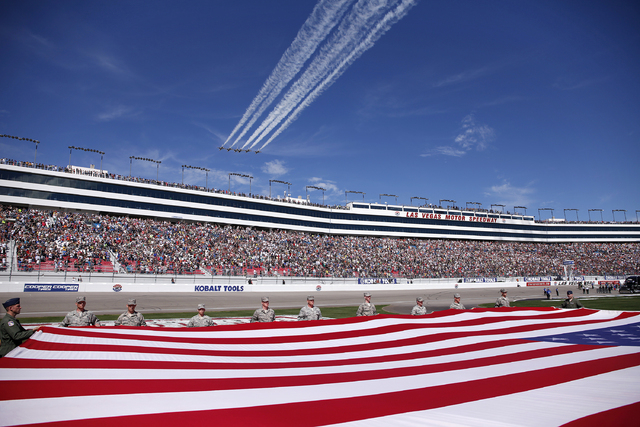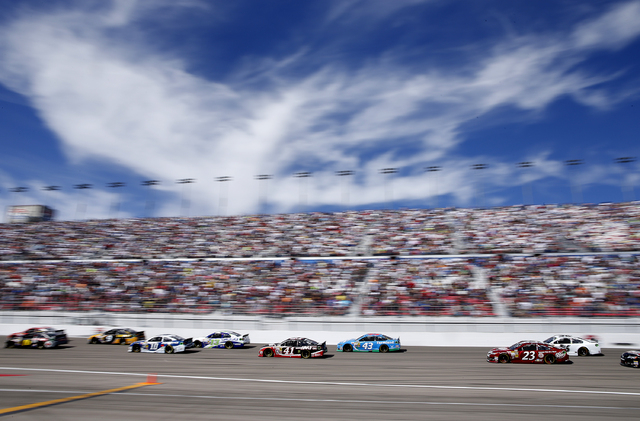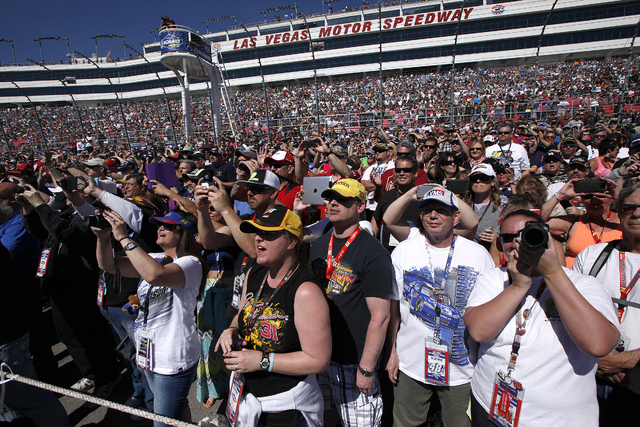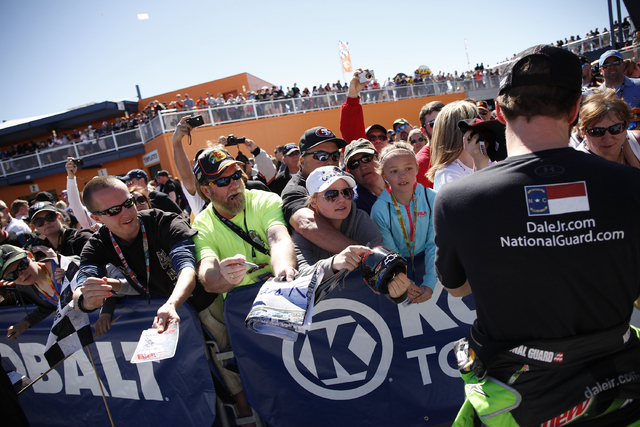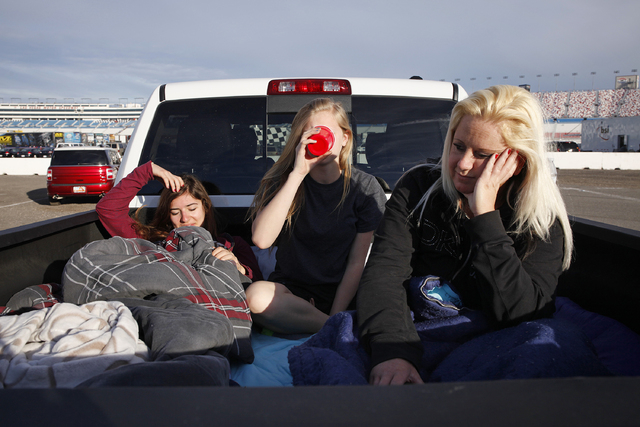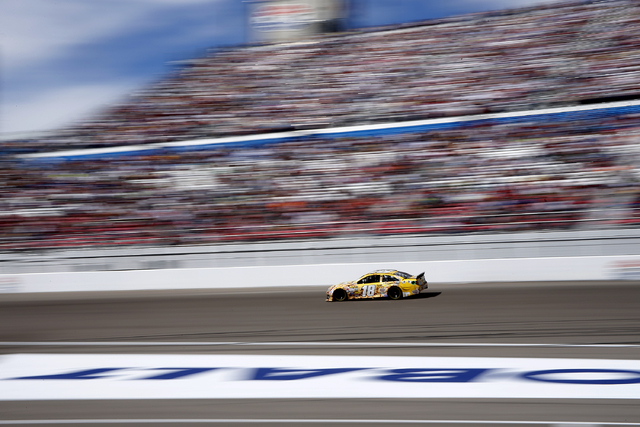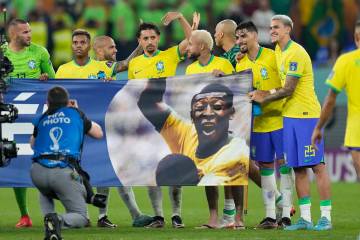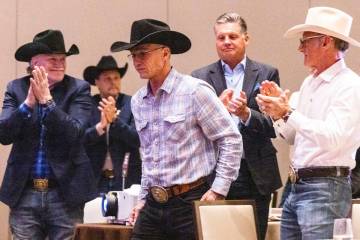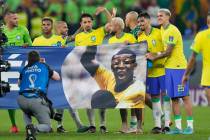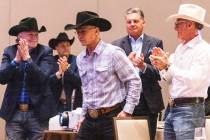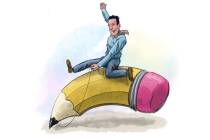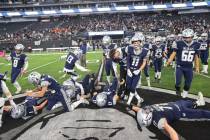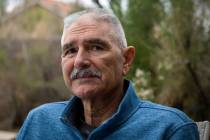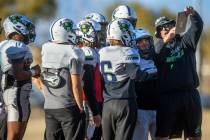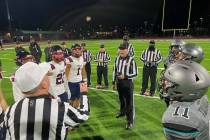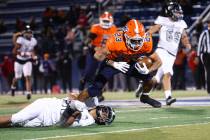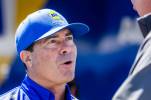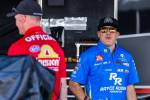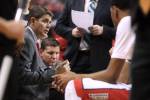NASCAR gets kick to the head
You may have heard that NASCAR lost its title sponsor the other day, that telecommunications giant Sprint is pulling out of the draft after the 2016 season. What you may not have heard is one of the reasons why:
Soccer.
Sprint has a new CEO, and while he’s from south of the Mason-Dixon line, it’s real far south, farther south than Kannapolis, N.C., or even Hueytown in Alabama. Marcelo Claure is from Bolivia.
When he became CEO of Sprint in August, it was agreed by a board of directors and stockholders and such that Claure should eliminate 3,700 jobs and $1.5 billion from departmental budgets. Sprint’s initial agreement with NASCAR was $750 million for 10 years, so that must have seemed like a good place to start, especially if you’re a soccer guy and not a car guy.
Claure owns a soccer team in Bolivia and is trying to bring Major League Soccer to Miami. His partner is global soccer icon David Beckham.
Ain’t that a corner kick to the head?
“You certainly don’t want to lose a sponsor like that,” Las Vegas Motor Speedway president Chris Powell said, “but I don’t think this is a comment on the business of NASCAR. I think it’s more a comment on Sprint’s business. That’s what I’m seeing from a distance.”
Sponsors come and go in sports, but it seems they’ve been driving away from NASCAR with the hammer down.
Sprint joins Nationwide, the title sponsor of stock car racing’s Triple-A series, which no longer is on NASCAR’s side (though it still will back Dale Earnhardt Jr. in selected 2015 races). Nationwide seems to have switched to Peyton Manning’s side, based on those TV commercials where he says chicken parm tastes so good.
The Nationwide Series will be known as the Xfinity Series in 2015 when Comcast’s cable TV division comes on board.
In August, the National Guard said it was ending its sponsorship of Junebug. It has been reported the National Guard spent $26.5 million annually to advertise on Earnhardt’s car but failed to sign up a single soldier. Not exactly bang for the buck.
Also, NASCAR tracks are shrinking like Marcos Ambrose’s lead after a late-race restart. Atlanta, Dover and Daytona are removing 17,000, 17,500 and 46,500 seats, respectively, to reduce seating capacity to 75,000, 95,500, and 101,500. Which is still a lot of seats. Not just as many as before.
It’s a trend in NASCAR. The Sporting News reports that in 2013, Talladega, Richmond, Chicagoland, Michigan, California, Darlington and Homestead eliminated seats. Tens of thousands of seats.
Gentleman, start your steam shovels. That’s what was written in 2013 when word got out Daytona was removing places to put backsides and beer coolers and putting in one of those fan experiences to disguise it.
Like Jimmie Johnson in one’s mirror, the people at LVMS saw it coming.
The local speed plant trimmed seating capacity by around 10,000 in 2010 by widening seats instead of removing them. LVMS still (almost) sells out its Cup race (this being Las Vegas and not, say, Darlington, S.C). But they don’t put up the Jimmy “Smut” Means auxiliary bleachers in Turn 3 anymore because the Petty and Earnhardt terraces are overflowing.
NASCAR races still are well attended because its tracks are supersized, some of the biggest sports stadiums in the world. But empty seats don’t look good on TV; they don’t create a buzz, or a demand for tickets.
They suggest a sport in decline.
Or, as Powell believes, they are indicative of a sport that looks almost as good on high definition TV as it does in person. Those 65-inch big screens with the LED technology are the biggest reason LVMS put in the Neon Garage.
With fewer people coming to the races, tracks are offsetting the loss of revenue by incurring the one-time fee to build a fan experience and then charging people extra to get an autograph or to listen to a local country-rock band cover Lynyrd Skynyrd tunes. Although that’s not exactly how the news release puts it.
This is how the news release usually puts it:
“We understand significant changes within Sprint and the highly competitive business environment it is in has led to a decision not to extend its Cup Series entitlement position following the 2016 season. The NASCAR Sprint Cup Series is a very unique, premium sports marketing platform, so we are are very confident of moving forward in 2017 with an outstanding new partner.”
This was from Brett Jewkes, NASCAR’s chief PR guy.
By definition, there is no such thing as “very” unique — something is unique, one of a kind, or it isn’t; there is no degree of uniqueness. But I think what Jewkes was trying to say is that NASCAR will survive despite losing its title sponsor, and by switching TV networks again, and by constantly changing the rules to make its playoff races more exciting, or so Danica Patrick is eligible to drive in its in Super Duper all-star race.
I agree.
But I suspect a lot people in Kannapolis and Hueytown are going to switch cellphone providers once they find out about the soccer thing.
Las Vegas Review-Journal sports columnist Ron Kantowski can be reached at rkantowski@reviewjournal.com or 702-383-0352. Follow him on Twitter: @ronkantowski



